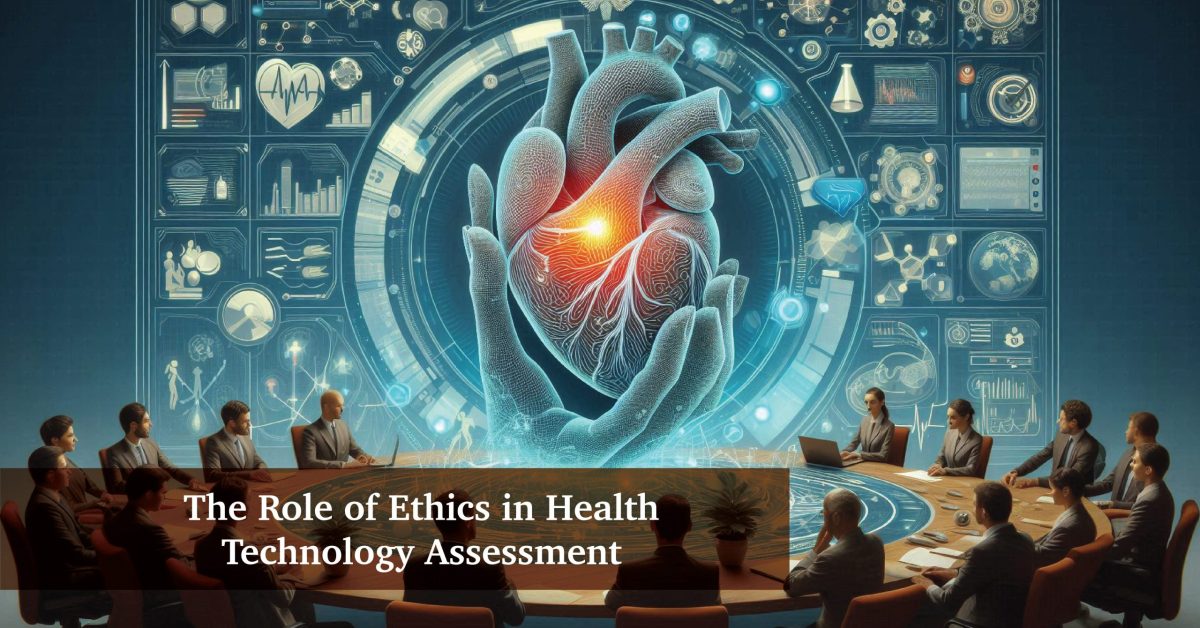The formal process of HTA involves the safe, economical, and efficient assessment of medical technology. It is becoming more and more integrated into the current healthcare system. However, after the evaluation of these obvious parameters, there comes an important dimension that is a requirement but is usually problematic because of the addition of further complications. The dimension is ethics. Thus, ethics in HTA would involve checking all the dimensions of the new health technologies for their moral implications, which are usually deep for society. It is with the changing and developing nature of healthcare technologies that the need for reflecting on the ethical dimensions of HTA has become more pressing. It ensures proper netting of technological development in view of the values of society with respect to individual rights, not increasing health inequalities, by careful conscientious consideration. Thus, the present essay shall strive to discuss the various roles, its importance, and the associated challenges, as well as the approaches and possible future directions for ethics in HTA.
Understanding the Ethical Dimensions
Some of the ethical dimensions of HTA may stretch beyond clinical and economic dimensions to include evaluation of the moral and societal implications of health technologies. Indeed, these very dimensions are important, as the technologies could impact the people either positively or negatively. Ethical considerations could be based on factors such as patient autonomy, justice, equity, and possible consequences for society in the long run.
Justice and equity are among the major ethical concerns in HTA. Health technologies need assessment for their capacities to either magnify or abate health disparities. For example, with certain advanced medical devices, which are affordable only for the rich, this may result in a pitfall in health inequalities. Assessment of equitable distribution of health technologies will ensure benefits for all sections of society, in particular the most vulnerable and weak sections.
Another critical ethics dimension is patient autonomy. As technologies are getting more complicated, it might be challenging for patients to understand the technology; thus, the foundation of ethics-based HTA is the need for informed consent and patient engagement regarding the decision of treatment. It puts forth that patients are offered clear and integrated information on both the benefits and possible risks of the technology and alternates so that a selection regarding health can be made.
The Integration of Ethics in HTA Methodologies
Integration of ethics in methods of HTA is a very thorny but inevitable area. Hence, quite a few methods have been developed to consciously introduce ethical considerations into HTA in a structured manner. Such approaches more frequently have involved the incorporation of standards or guidelines that provide evaluators with tools for the assessment of the ethical implications of health technologies.
One of the well-recognized methods is to include the membership of ethical experts on HTA panels, which provides an addition of a unique appraisal outlook for the appraisal process in regards to ethical dimensions. They can provide insights into the potential societal impacts of a technology, identify ethical dilemmas, and suggest ways to address them.
Some HTA agencies have gone beyond and developed their own methodological guidance documents, giving advice on how to go about evaluating ethical considerations in their work. Such guidance frequently includes checklists or criteria against which various ethical dimensions could be assessed both within and between considerations of equity, patient autonomy, or societal impact. Such systematic guidance ensures that ethical reflection is provided throughout the HTA process.
Another strategy on how to infuse ethics into HTA is the infusion of deliberative processes. The inclusion of stakeholders would encompass patients, providers, the public, or any other party that may have an interest in or be affected by a technology to discuss its ethical ramifications. Open deliberative processes serve to unearth ethical issues that would be very hard to point out on a more conventional assessment. This participatory approach guarantees that divergent views are taken on board, thereby advocating for more holistic and ethically sensitive inquiries.
